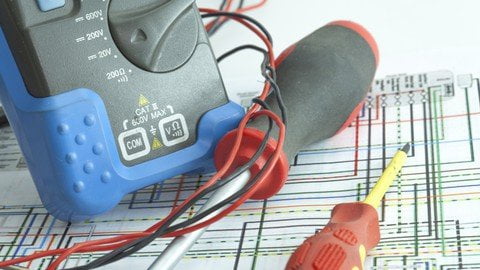
MP4 | Video: h264, 1280×720 | Audio: AAC, 44.1 KHz, 2 Ch
Genre: eLearning | Language: English + srt | Duration: 46 lectures (7h) | Size: 1.67 GB
The purpose of this course is to cover from basic to advanced networking including all wireless networking technologies.
What you’ll learn:
Learn How Wireless works
Learning Radio Wave Fundamentals
Understanding 802.11 standards
Understanding Wireless LAN Types and Components
Learning Wireless Signal Characteristics
Understanding Radio Frequency Behaviors
Understanding Spread Spectrum
Learn About Common Wireless Bands
Learning Wireless Network Design
Learning Wireless Network Installation and Testing
Learning Operational Support Considerations
Requirements
You have an attitude to learn while having fun :)
Basic networking knowledge is helpful but not required
Description
Welcome to this course: Learn and Understand Wireless Technologies. Wireless communication is the transfer of information between two or more points that do not use an electrical conductor as a medium by which to perform the transfer. The most common wireless technologies use radio waves. With radio waves, intended distances can be short, such as a few meters for Bluetooth or as far as millions of kilometers for deep-space radio communications. Wireless networks are computer networks that are not connected by cables of any kind. The use of a wireless network enables enterprises to avoid the costly process of introducing cables into buildings or as a connection between different equipment locations. The basis of wireless systems are radio waves, an implementation that takes place at the physical level of network structure. It is common for people to wonder “what is a wireless network” because while they exist nearly everywhere people live and work, how they work is often a mystery. Similarly, people often assume that all wireless is Wi-Fi, and many would be surprised to discover that the two are not synonymous. Both use RF, but there are many different types of wireless networks across a range of technologies, while Wi-Fi is specific to the wireless protocol defined by the Institute of Electrical and Electronic Engineers (IEEE) in the 802.11 specification and it’s amendments.
In this course, you’ll learn:
Learn How Wireless works
Learning Radio Wave Fundamentals
Understanding 802.11 standards
Understanding Wireless LAN Types and Components
Learning Wireless Signal Characteristics
Understanding Radio Frequency Behaviors
Understanding Spread Spectrum
Learn About Common Wireless Bands
Learning Wireless Network Design
Learning Wireless Network Installation and Testing
Learning Operational Support Considerations
Who this course is for
Web Developers
Software Developers
Programmers
Anyone interested in Wireless
Homepage
https://www.udemy.com/course/learning-wireless-technologies/




